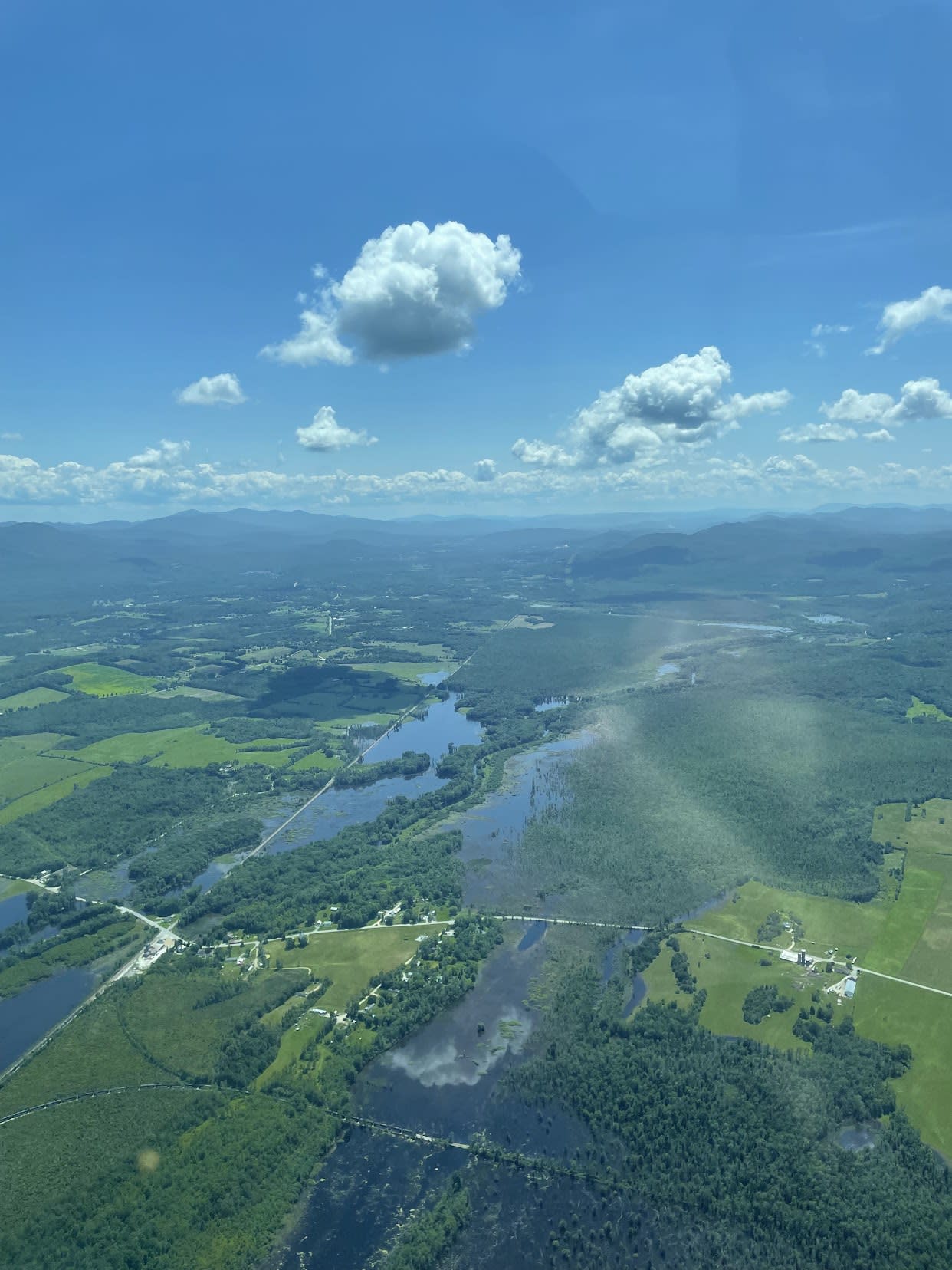July 2024 Webinar - Prioritizing Floodplain Reconnection to Improve Ecohydrological River Corridor Function
Thursday, July 18, 2024 (12:00 PM - 1:00 PM) (CDT)
Description
Monthly webinars are offered as a benefit of SWS membership. Each quarter (Mar, Jul, Sep, Dec) a SWS webinar is open for non-members to attend at no cost.
Functioning alluvial floodplains perform many ecosystem services including sediment and nutrient storage; flood attenuation; groundwater recharge; and the creation and maintenance of aquatic and riparian habitats, including forms that support plant and animal occurrence and adaptation. Statewide assessments by the Vermont Conservation Design Program assign a high priority to all riparian corridors for conservation and restoration, however limited resources and capacity require a more granular approach. The Vermont Functioning Floodplain Initiative (FFI) tool provides a framework for prioritization and tracking floodplain reconnection projects to support nutrient retention and community resilience and will include instream and floodplain habitat function. Prioritizing specific floodplain reconnection projects to enhance habitat function across the watershed requires establishing the functional relationship between natural communities, indicator species occupancy, and eco-geomorphic connectivity. The Lewis Creek watershed, located within the Lake Champlain Basin of Vermont serves as a case study. The watershed has a decades long history of conservation and restoration. The modeling process for developing the natural community distribution maps using geomorphic floodplain units and modeled flood inundation extent will be outlined. We then outline ongoing work to develop functional relationships using indicator species and their occurrence to inform departure and restoration prioritization objectives based on floodplain to upland connectivity. The watershed is currently instrumented to monitor for inundation along four target reaches, as well as River Otter (Lontra canadensis) and Northern Leopord Frog (Lithobates pipiens) presence at N = 48 sites. Preliminary map and occupancy results will be shared with implications for future findings.
|
Speaker: Elizabeth Doran, PhD
Dr. Doran is an environmental engineer and Research Assistant Professor in the Department of Civil and Environmental Engineering at the University of Vermont. Her research focuses on understanding and enabling adaptation and resilience to climate change. Her work seeks to understand change in the underlying physical and social processes of the climate-land system; and create resilience through application of technical and policy interventions across scales. She employs an interdisciplinary, collaborative, and multi method approach, combining in-situ and remotely sensed observations with advanced numerical modeling techniques. Dr. Doran is also an FAA certified private pilot and enjoys running, biking and skiing with her family.
12-1 PM CDT
98

 Photo taken by Dr. Elizabeth Doran from 3,000 feet a.s.l above Otter Creek looking South toward Brendan Swamp Wildlife Management Area (center) after severe flooding in July 2023. Vermont Fish and Wildlife manages the swamp and describes it thusly: Brandon Swamp WMA is a large floodplain swamp dominated by a red maple-northern white cedar swamp natural community. The community is characterized by dense pockets of cedar with mossy hummocks and hidden pools. Riparian areas support silver maple, willow, elm, basswood and cottonwood. The habitat within the WMA supports white-tailed deer, cottontail rabbits, red fox and coyotes as well as weasels, minks, otters and beavers. The habitat is excellent for waterfowl and mallards, black ducks, hooded mergansers, blue-winged teals and wood ducks can be found here. Many species of songbirds, raptors and upland game birds use this habitat as well. These wetlands provide habitat for many of the reptile and amphibian species found in Vermont including Northern two-lined and four-toed salamanders, bullfrogs, pickerel and wood frogs and snapping and painted turtles. Otter Creek supports a warmwater fishery of large and smallmouth bass, yellow perch, chain pickerel northern pike and brown bullhead" (VF&W, 2024)
Photo taken by Dr. Elizabeth Doran from 3,000 feet a.s.l above Otter Creek looking South toward Brendan Swamp Wildlife Management Area (center) after severe flooding in July 2023. Vermont Fish and Wildlife manages the swamp and describes it thusly: Brandon Swamp WMA is a large floodplain swamp dominated by a red maple-northern white cedar swamp natural community. The community is characterized by dense pockets of cedar with mossy hummocks and hidden pools. Riparian areas support silver maple, willow, elm, basswood and cottonwood. The habitat within the WMA supports white-tailed deer, cottontail rabbits, red fox and coyotes as well as weasels, minks, otters and beavers. The habitat is excellent for waterfowl and mallards, black ducks, hooded mergansers, blue-winged teals and wood ducks can be found here. Many species of songbirds, raptors and upland game birds use this habitat as well. These wetlands provide habitat for many of the reptile and amphibian species found in Vermont including Northern two-lined and four-toed salamanders, bullfrogs, pickerel and wood frogs and snapping and painted turtles. Otter Creek supports a warmwater fishery of large and smallmouth bass, yellow perch, chain pickerel northern pike and brown bullhead" (VF&W, 2024)